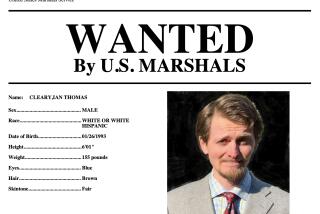Shultz Cautions Danes on Nuclear Ban
Calling Denmark’s new policy on nuclear weapons carried by visiting ships a “real problem,” Secretary of State George P. Shultz on Monday urged that small NATO nation to accept the responsibilities as well as the benefits of the alliance that has kept the peace in Europe for four decades.
Earlier this month, the Danish Parliament adopted an opposition resolution that tightened the nation’s ban on nuclear weapons and provoked a domestic political crisis.
Copenhagen’s minority government called a snap election for May 10 over the resolution, which, if fully implemented, would require authorities to remind every warship entering Danish ports that Denmark bars nuclear weapons from its territory in peacetime.
The government of the United States and Britain, the only nuclear powers in the military section of the North Atlantic Treaty Organization, follow a policy of neither confirming nor denying the presence of nuclear arms aboard their vessels, and the two nations say they cannot comply with the Danish resolution.
Shultz met with Danish Foreign Minister Uffe Ellemann-Jensen on the margins of a NATO meeting here and afterward, referring specifically to Denmark, told a news conference: “If you like the benefits, if you like the peace, if you like the fact that progress is being made in negotiations (with the Soviet Union), then you ought to like the responsibilities that go with making that possible.”
A Threat to Defense
NATO authorities say enforcement of the Danish resolution would pose a threat to the defense of the alliance’s northern flank because it would hinder exercises aimed at testing its strategy of reinforcing Denmark in case of war.
The only other U.S. ally to enforce such a policy is New Zealand, which requires visiting ships to affirm positively that they carry no atomic weapons. As a result, the so-called ANZUS pact no longer functions in the South Pacific, although U.S. cooperation with Australia, the other member of the pact--named for the initials of Australia, New Zealand and the United States--has been unaffected.
The issue in Denmark is seen as far more important than that in New Zealand because NATO’s defense is based on the threat of nuclear force to discourage any Soviet invasion of Europe with conventional forces.
“The Danish move cannot be let go unchallenged,” a senior NATO official remarked.
Shultz came here mainly to brief the NATO alliance on his just-concluded visit to Moscow, but he acknowledged that he took the occasion to tell Ellemann-Jensen that he did not like the Danish policy “one bit.”
Shultz Mum on Action
Shultz refused to say what action NATO might take if Denmark does not reverse its position. He said he does not want to “inject himself into the politics of Denmark” by speculating on future possibilities.
Now that prospects are dim for the signing of any new strategic arms reduction treaty at the U.S.-Soviet summit meeting in Moscow next month, Shultz was asked at his news conference whether negotiations with the Soviets would stop after the summit or continue for the rest of the Reagan Administration’s term in office.
“We’re not going to stop,” he said. Both nations remain “very interested” in getting an agreement to cut strategic offensive weapons by 50%, he added, and “all candidates” in the U.S. presidential election campaign support that goal.
More to Read
Start your day right
Sign up for Essential California for news, features and recommendations from the L.A. Times and beyond in your inbox six days a week.
You may occasionally receive promotional content from the Los Angeles Times.






